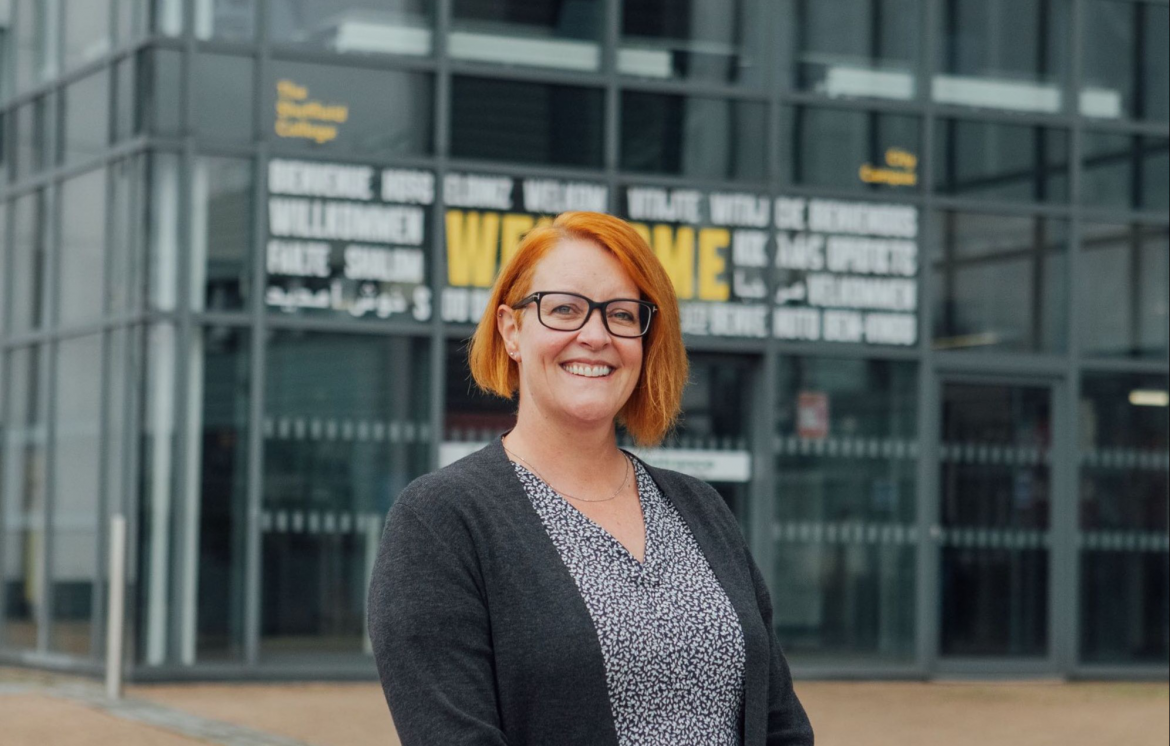
By Angela Foulkes, Chief Executive and Principal, The Sheffield College
Almost half of young people in the UK feel anxious about their future on a daily basis, according to newly published research from the Prince’s Trust.
The Class of Covid Report reveals that the impact of the Covid-19 pandemic and the cost of living crisis are, unsurprisingly, taking their toll on 16 to 25-year-olds.
Researchers found that 36% of young people think their job prospects will never recover from the pandemic. That figure rises to 42% for those from lower income households.
Crucially, the report highlights the urgent need to support young people to regain their confidence and build their skills for the future.
Preparing young people, as well as adult learners, for their future careers and transforming lives through learning is at the heart of everything we do at The Sheffield College.
Having carefully navigated the pandemic and returned to on-campus learning, we nevertheless see its legacy continue. Feelings of uncertainty about the future are also, arguably, exacerbated by other crises of our times – global conflict, climate change and economic turbulence. Despite this, we know that education can not only transform lives and career prospects but provide a sanctuary during unsettling times.
As we celebrate Colleges Week 2022, from October 17th to 21st, which is focussing on the themes of staff, students and skills, it is worth reflecting on the vital role that colleges play. In England, colleges educate and train 1.6 million people whilst meeting the needs of employers and supporting the economy and their local communities.
If you are a local employer, you can help us in a range of different ways from getting involved in our apprenticeship programmes to supporting our employer skills academies and signing up to our job recruitment agency for students.
Colleges hold the key to reducing skills gaps, improving social mobility, combatting inequality and providing better opportunities to their local communities. Education not only drives opportunities but confidence and self-belief. We see that first hand with our students and I am incredibly proud of our staff and the impact they have in this wonderful city of ours.
Around 14,000 adults and young people study and train with us a year. Approximately 57% of our students live in a disadvantaged postcode, 35% are from an ethnic minority background and 22% declare a learning difficulty or disability.
The College works with approximately 2,700 employers. Of those, around 1,000 employers are involved in apprenticeship programmes. Approximately 1,600 employers provide experience of work, industry placements or other work-related activity to students.
Last year, we set up a job recruitment agency. Students who sign up to the College’s Employment Services Agency can look for full-time, part-time or seasonal job opportunities. Whether they are adults retraining or young people just starting out on their career journey, the aim is to support them to maintain or achieve financial stability by earning an income alongside completing their studies.
During 2021/22, we helped 3,300 students, aged 16 to 19, through our Student Support Fund which aims to ease the financial pressures around studying. In terms of a snapshot picture of specific support provided, by the end of the last academic year, in July 2022, there were 694 students aged 16 to 18 receiving free college meals.
In addition, 63 students had help with childcare support, 144 students with tuition fees, 2,201 students with travel costs, 1,000 students with course related items or costs and 171 students with IT devices.
This academic year, we are working on plans for a food bank scheme, SheffCol Community Kitchen, which is needed more than ever given the cost of living crisis. As the cost of living crisis bites, we must ensure that young people, arguably the age group most disproportionately affected by all the difficult issues of our time, are not left behind.
The Skills and Post-16 Education Act, which became law earlier this year, aims to make it easier for people to get the skills in industries with skills gaps such as health and social care, engineering, digital, clean energy and manufacturing. However, we have yet to see any significant levelling up of skills across the country.
Apprenticeships, for example, are a brilliant way for 16 to 25-year-olds to get a head start on careers that would take them out of or move them further away from poverty. But a recent Sutton Trust report (2021) found that access to apprenticeships for young people and those from disadvantaged backgrounds is an ongoing problem.
Since the apprenticeship levy reforms were introduced in 2017 there has been a decline nationally in the number of apprenticeships, compounded by the Covid-19 pandemic. We need more flexibilities for employers and a regional approach to championing apprenticeships, particularly as the majority of businesses in our region are SMEs.
We would like to see more investment so that employers who need increased support and flexibility can create more training and job opportunities that our communities need. Together, we can play an even more influential role in our great city, transforming lives and ensuring that everyone has the opportunity to benefit from education and skills opportunities.
Find out more about our apprenticeship programmes and employer partnerships. Email apprenticeshipsandtraining@sheffcol.ac.uk and industryplacements@sheffcol.ac.uk.
Follow @SheffCol @AoC_Info #LoveOurColleges and #CollegesWeek.

